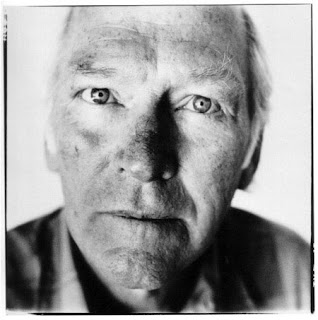 |
| Donald Davidson |
In an earlier post I looked at an argument by Donald Davidson that supported the idea that thought depends on language. Thought is possible through learning of the concepts of true and false through interpreting another person asserting something about an object in the world. Davidson calls this “triangulation.”
I suggested that the problem with Davidson’s argument is that, from an non-theistic perspective, there appears no way for a “first thought” to emerge from non-thought. It only takes one person who has language, and therefore thought, to get the ball rolling. But if there is no language and therefore no thought then there can be no first thought. I considered this to be a pretty fatal objection to Davidson’s argument. However, I found myself largely in agreement with him on thought’s dependence on language.
Theism, I thought, could solve the first thought problem. Since God is an eternal linguistic community in virtue of his triune nature he is an eternal thinker. There is no first thought. Human beings are taught to think by God through him speaking to them in the garden (e.g “don’t eat from that tree” etc.).
So, here is the problem with my solution. Davidson’s argument rests on the idea that human beings interpret other people asserting things about objects in the world. We can see others doing this even when we don’t understand the language they are using. This, suggests Davidson, gives us the concepts of true and false. However, in order for this to happen one must have both the concept of a truth asserted and the possibility that one can be mistaken. You can’t have one without t’other.
The objection goes as follows. If God is the first thinker, he is the person who provided the concepts of true and false to the first humans. But God is infallible and does not make mistakes. Not even possibly. If there is no possibility that God would make a mistake then an important condition is missing from the scenario.
Here is a response. Just because there is no possibility of God being wrong about anything does not entail that there is no possibility of there being a mistake. It is just not possible that God makes it. Furthermore, God knows that human beings will make many mistakes. If he knows this and is asserting truths about the world to them he can speak to them about possible mistakes they might make. God both nods and shakes his head as he teaches the first humans to speak showing them what mistakes they might make.
The problem is more intractable, however, since we are left with a crucial condition for thought that is not met by God internally. If God’s ability to think is dependent on language which in turn is dependent upon the concepts of true and false but there is intrinsically no possibility of mistakes being made in God then it turns out that even God fails to obtain the conditions for thought. What if God had never even considered creating anything. Would God be able to think at all?
This later problem assumes something about knowledge that applies only to humans but not to God. Davidson’s argument assumes that knowledge is always acquired. S knows p if and only if S acquires knowledge that p. Consequently human beings do not know anything innately. God, however, is an eternal being who has never acquired any knowledge.
